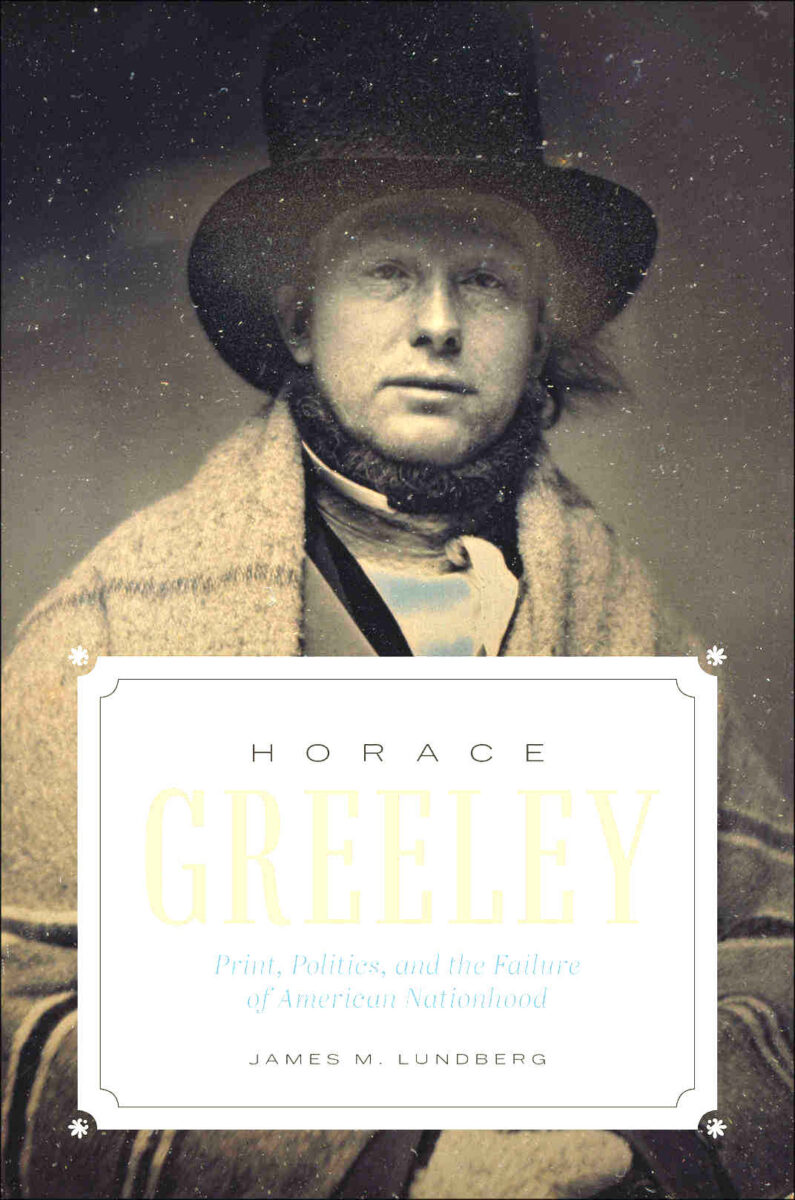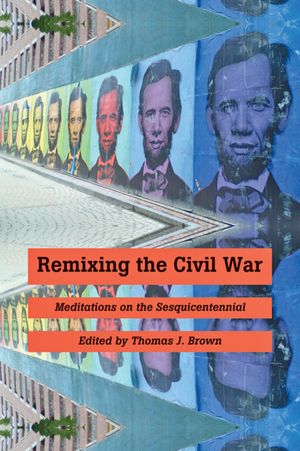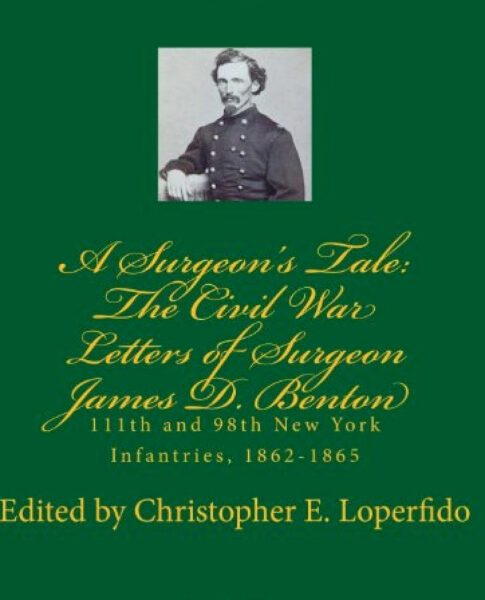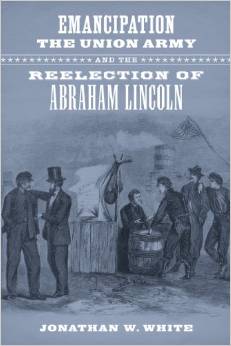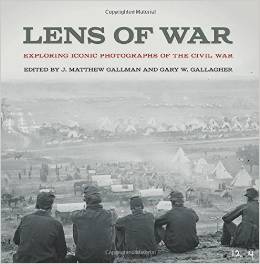Most students of nineteenth century America regard Horace Greeley as a political chameleon. The bespectacled New York Tribune editor who sensationalized the violence of Bleeding Kansas, impatiently urged Lincoln’s armies “on to Richmond,” and sent up the “Prayer of Twenty Millions” eventually shuddered at the war’s costs, posted bail for Jefferson Davis, and made a quixotic attempt to unseat Ulysses Grant as the Democrat Party’s unlikely nominee for president in 1872. Yet as University of Notre Dame history professor James M. Lundberg argues in this compelling new book, Greeley keenly “believed in his own special calling to help realize an American national consensus through the power of print.” Locating his subject in the larger histories of print culture, personal ambition, and a budding American nationalism, Lundberg discovers “a more capacious figure whose inconsistencies are less bewildering than they have often appeared” (5). He takes Greeley seriously as both a man and a symbol—a figure who sought to transcend his turbulent times.
From the moment Horace Greeley arrived in New York City, the ambitious young Whig believed that the press could assuage the new republic’s growing pains by promoting a singular vision of order, industry, and social reform. Presses began churning out copies of his New York Tribune in 1841. Yet the nationalist vision of the self-appointed “oracle on the Hudson” foundered on the shoals of the sectional crisis—in response to a new, proslavery argument and a strident southern nationalism. During the 1850s, Greeley earned a national reputation by giving shape and form to a “self-conscious political North” (110). It was an ironic sort of fame for a disciple of Henry Clay.
When secession came, Greeley never abandoned the faith—shared by Abraham Lincoln, Ulysses S. Grant, and others—that the dismemberment of the Union was the radical act of a hotheaded cabal. He similarly held fast to his belief that the Civil War was “a struggle for the realization of national destiny.” It was when the conflict “did not conform to the schemes he laid out for it,” Lundberg contends, that Greeley made his “most unaccountable reversals” (115). The author demonstrates how wrenchingly difficult it was for an idealist like Greeley to make sense of the war. Mounting casualties and the doleful drip of reports from the battlefield never quite aligned with his “squint-eyed optimism”; as such, he struggled his way through a tedious, multi-volume history of the war, The American Conflict, and sued for peace (126). Greeley understood slavery as the cause of the war, but he regarded emancipation as a means for realizing the war’s true end: a brawny new Union.
Greeley hoped that the war would result in “a deeper meaning and experience of American nationhood—something altogether more organic and whole than what had come before” (139). Here again, his faith in Southern non-slaveholders proved misplaced. His appeal for “universal amnesty” and “impartial suffrage”—limited as it was—could not achieve national healing. Later, during his disastrous 1872 presidential campaign, Greeley’s embrace of an empty reconciliation significantly imperiled the war’s charge and the future course of Reconstruction. The man never quite met his moment.
Lundberg does not seek to explain away Greeley’s inconsistencies; to the contrary, he embraces them as a starting point for his penetrating analysis. Rather than mock or scorn Greeley as a self-interested egotist, Lundberg reveals “the near impossibility of the consensus nationalism for which he yearned” (12). The man who “began his career wishing to be America’s oracle,” he writes, instead “ended it as America’s prism” (2). Few figures embodied so well the Civil War’s promise and betrayals. It’s that reality—much more than his outsized personality and oversized coat—that has rendered Horace Greeley so vexatious.
Brian Matthew Jordan is the author of A Thousand May Fall: Life, Death, and Survival in the Union Army (2021).
